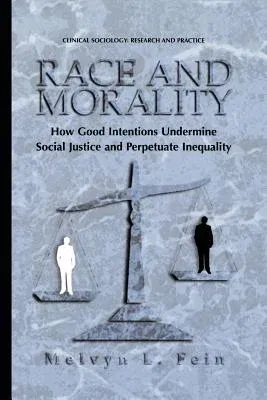Melvyn L Fein
(Author)Race and Morality: How Good Intentions Undermine Social Justice and Perpetuate Inequality (Softcover Reprint of the Original 1st 2001)Paperback - Softcover Reprint of the Original 1st 2001, 24 September 2012

Qty
1
Turbo
Ships in 2 - 3 days
In Stock
Free Delivery
Cash on Delivery
15 Days
Free Returns
Secure Checkout
Part of Series
Clinical Sociology: Research and Practice
Print Length
356 pages
Language
English
Publisher
Springer
Date Published
24 Sep 2012
ISBN-10
1461354765
ISBN-13
9781461354765
Description
Product Details
Author:
Book Edition:
Softcover Reprint of the Original 1st 2001
Book Format:
Paperback
Country of Origin:
NL
Date Published:
24 September 2012
Dimensions:
23.39 x
15.6 x
1.98 cm
ISBN-10:
1461354765
ISBN-13:
9781461354765
Language:
English
Location:
New York, NY
Pages:
356
Publisher:
Weight:
526.17 gm

